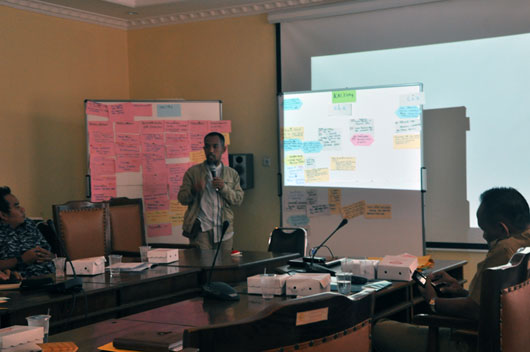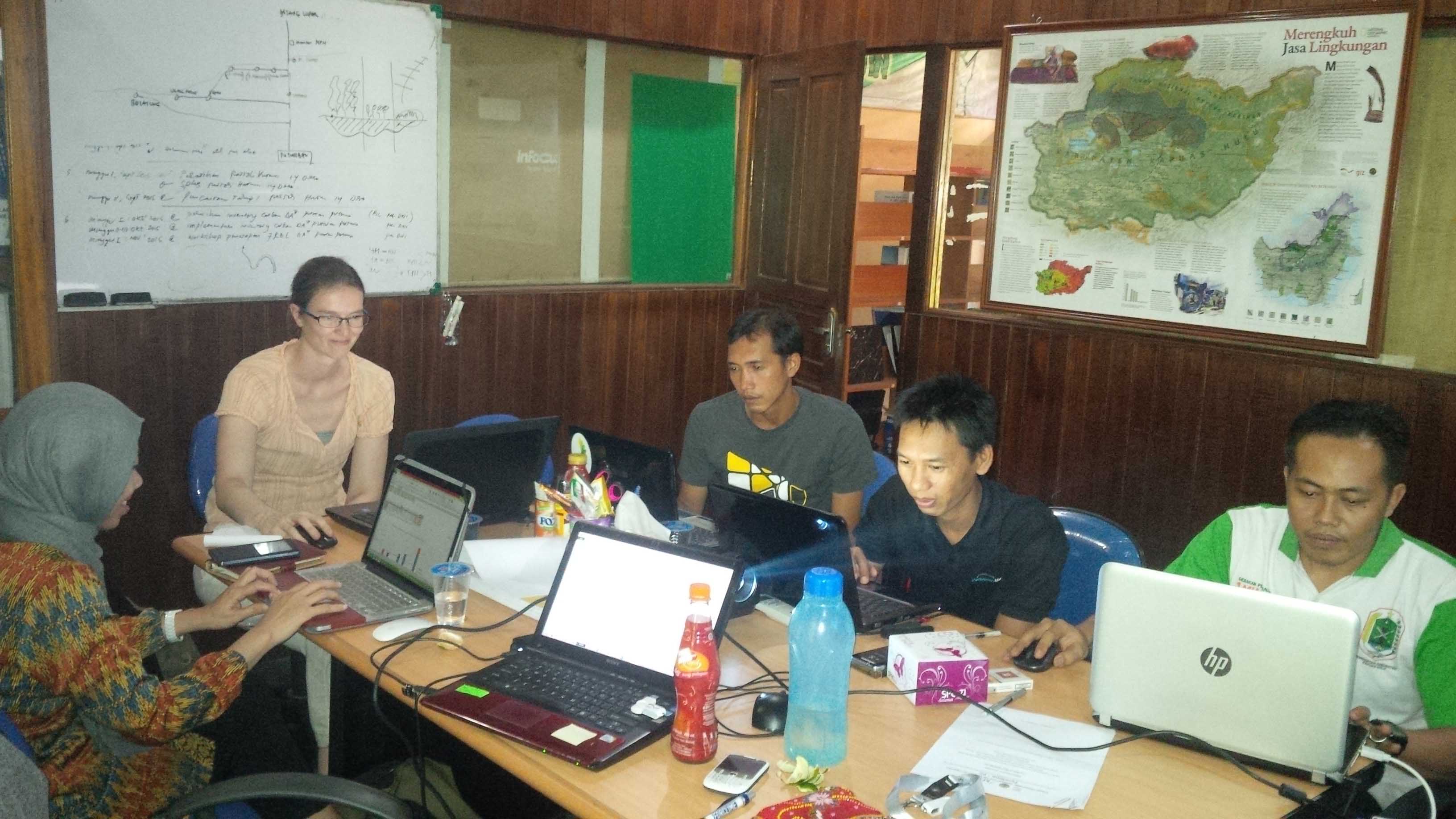FORCLIME
Forests and Climate Change ProgrammeTechnical Cooperation (TC Module)

Select your language
Today’s development programmes, from planning to evaluation, are “oriented towards impacts” in response to international requests for more effectiveness and transparency. Moreover, the international cooperation also being geared to the United Nations’ Sustainable Development Goals, programmes are expected to produce impacts that are visible at the micro-levels of households or individuals. On this basis, FORCLIME-TC conducted a monitoring assessment using the Most Significant Change (MSC) technique, a qualitative and participatory form of monitoring and evaluation, based on the collection, systematic selection and analysis of stories of significant changes in people’s lives as a result of development activities.
The collection of MSC stories presents on a book: “A Portrait of Changes in FORCLIME. Monitoring the Impact of the Forests and Climate Change Programme (FORCLIME), Technical Cooperation Module”.
For more information, please contact:
Georg Buchholz, FORCLIME Programme Director

With the aim to harmonize programme priorities of FORCLIME Technical Cooperation 2017 - 2019 in conjunction with the provincial forestry development plan, a workshop was conducted with officials of East Kalimantan Province on 24 January at the Provincial Forest Service office in Samarinda, East Kalimantan. The meeting elaborated the plan of activities to be implemented in 2017 as well.
FORCLIME works in three pilot districts, such as Berau (East Kalimantan), Malinau (North Kalimantan), and Kapuas Hulu (West Kalimantan). The support for the three districts will remain as the "core" activities of the programme. However, due to the changing dynamics of forest management authority following the enactment of the Law 23/2014, the coordination of the activities will be carried out at the provincial level.
The Head of the Provincial Forestry Office of East Kalimantan, Ir. Wahyu Widhi Heranata, MP., conveyed his appreciation for FORCLIME Technical Cooperation Module support in the efforts to reduce greenhouse gas emissions (GHG) from the forestry sector. Future support is still needed to accomplish sustainable forest management and improve the community welfare through activities related to Forest Management Unit (FMU), social forestry, human resource capacity building, land and forest fires prevention.
Similar meetings will be held also in provinces of North Kalimantan and West Kalimantan in the near future.
For further information, please contact:>
Tunggul Butarbutar, Strategic Area Manager, Forest Management Unit Development
Edy Marbyanto, Strategic Area Manager, Human Capacity Development
Suprianto, Technical Adviser, Forest Management Unit Development
Similar meetings will be held also in provinces of North Kalimantan and West Kalimantan in the near future.
 The head of district of Kapuas Hulu has finally endorsed the district’s FREL through a decree in December 2016 (SK Bupati No. 620/2016) to the amount of 3.42 MtCO2e/year which is Kapuas Hulu’s average annual emission from deforestation and forest degradation of the period 1990-2012.
The head of district of Kapuas Hulu has finally endorsed the district’s FREL through a decree in December 2016 (SK Bupati No. 620/2016) to the amount of 3.42 MtCO2e/year which is Kapuas Hulu’s average annual emission from deforestation and forest degradation of the period 1990-2012.
Since 2013, the district Kapuas Hulu, West Kalimantan, has been supported by FORCLIME to develop its Forest Reference Emission Level (FREL). The district’s Monitoring, Reporting and Evaluation (MRV) team had been established in 2014 and consisted of members from various local government institutions, NGOs as well as FORCLIME. Over the course of two years, this team has been working continuously on the development and improvement of approach, methodology and data and was responsible for the technical implementation of FREL calculation as well as reporting. The implemented methodology follows the national FREL approach closely.
For more information, please contact:
Stephanie Wegscheider, Development Advisor for GIS and Remote Sensing


